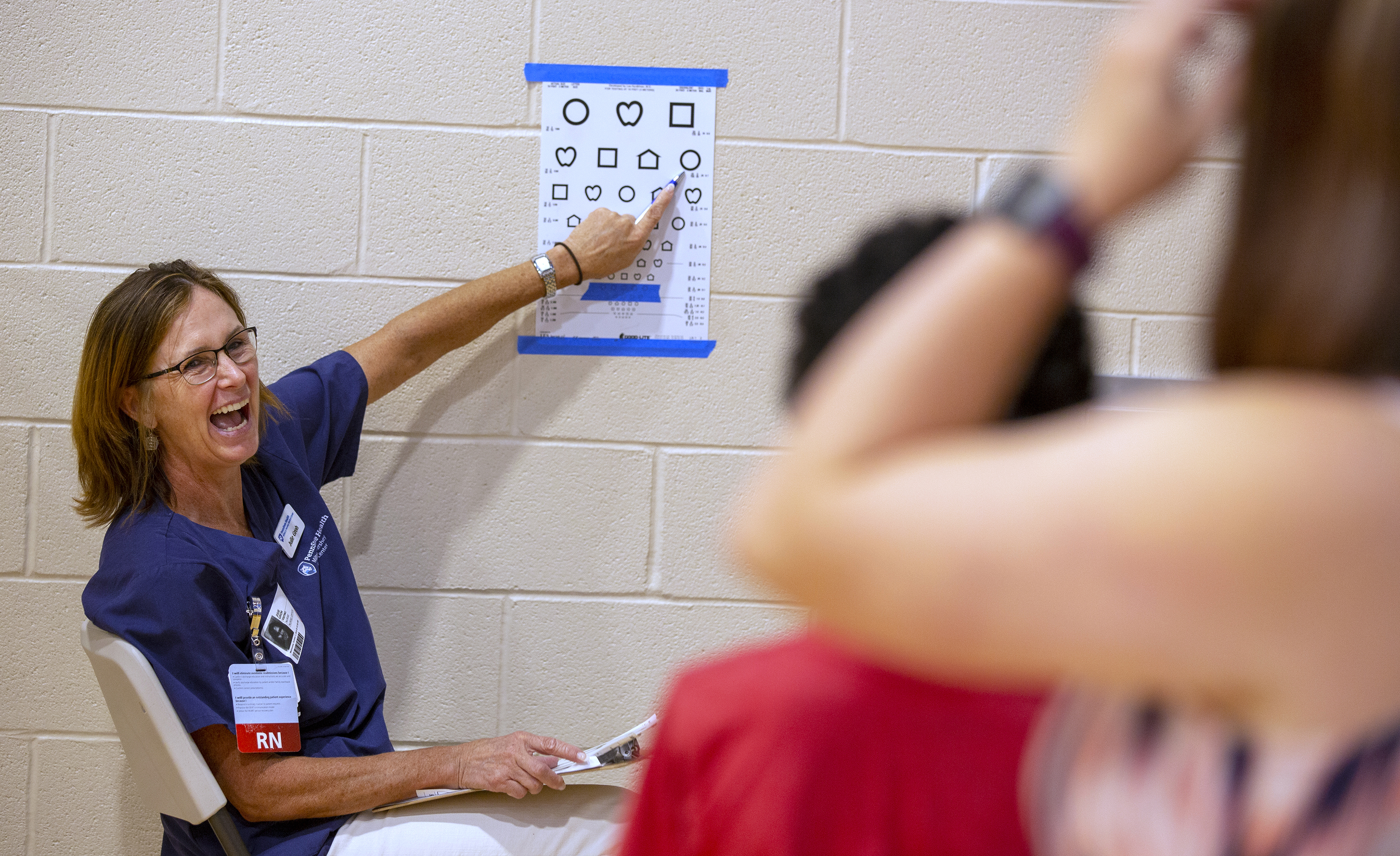I am Penn State Health: Julie Groh

From the time she was a little girl, Hummelstown resident Julie Groh loved taking care of people.
“It’s an honor to be allowed into people’s lives when they’re at their most vulnerable and they choose to trust you,” said Groh, who grew up to become a community health nurse. For her, there are no typical days – she may be offering blood pressure checks at area food pantries, checking students’ vision and hearing at school, developing clinical experiences for nursing students or helping people plan end-of-life care.
Watch video: Find out why Julie Groh loves to care for people as a community health nurse.
Users on clinical workstations at Hershey Medical Center: Click here to hear why Julie is proud to work at Penn State Health:
This is the Best Part of Working at Penn State Health
My co-workers are incredible, and I love the variety of collaborations and teamwork we share with Penn State College of Medicine.
Biggest Motivation
Small things can make such a big difference. A simple blood sugar test can detect diabetes in someone who had no idea they have it – and we can point them to resources for care. Later, they come back and thank us for saving their life.
Biggest Challenge
People who need care and don’t or won’t follow up, despite our best efforts to educate them.
Favorite Project
I love working at food pantries. The same clients come every month, and they learn to trust us and open up about what’s going on in their lives.
On My Bucket List
I want to go on an African safari.
Surprise!
I was an Army nurse for four years and was stationed in Germany.
What Others Say About Julie
“Julie demonstrates empathy for our community members in need, providing comfort and serving as their advocate. She always takes time to listen even when she is very busy.”
~ Judy Dillon, recently retired director of community health
This is Why I’m Proud to Work Here
I love the part of Penn State Health that is devoted to people struggling with economic stability, where they live and other social determinants of health. It’s not all about the money – it’s about trying to make a difference in the community.
If you're having trouble accessing this content, or would like it in another format, please email the Penn State College of Medicine web department.
